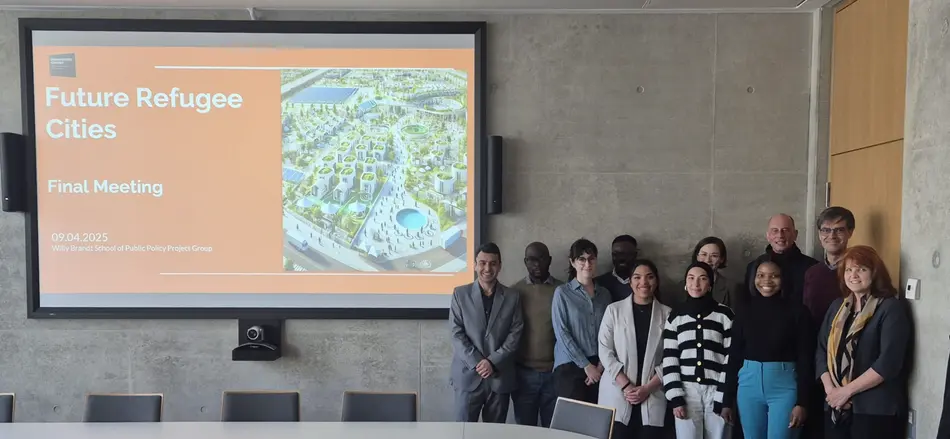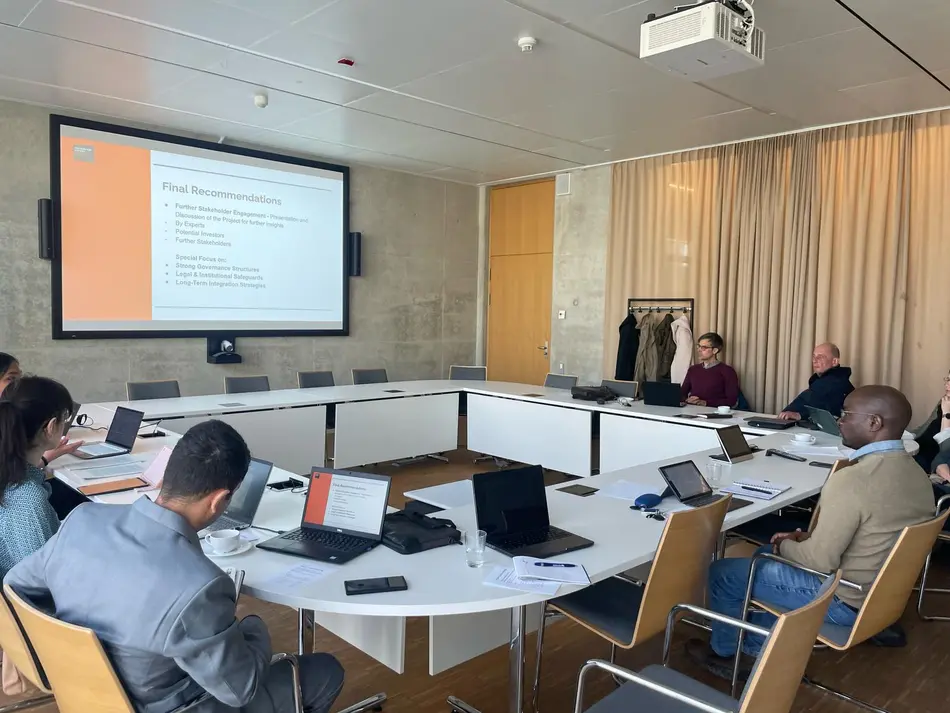Arguably, such a city could be a promising alternative but raises several critical questions: Who should govern these cities? How can they promote shared benefits and avoid power imbalances? What role should the EU and international actors play in ensuring legitimacy, funding, and oversight? Responding to these questions, a student team from the Willy Brandt School of Public Policy collaborated closely with the Lutheran World Federation, former Minister Wolfgang Tiefensee (SPD), and Dr. Katja Böhler from Thuringia’s State Ministry for Economy, Science, and Digital Society. Together, they developed the innovative “Future Cities” concept.
The primary goal of this project was to examine existing models and propose an alternative approach capable of addressing both humanitarian and economic realities. The team conducted an in-depth comparative analysis of two prominent global approaches: Paul Romer’s ‘Charter Cities’, which promises rapid economic opportunities but frequently struggle with legitimacy and local acceptance; and the UNHCR inspired ‘Cities of Hope’, which prioritise empowering refugees through participation and education but often face severe funding challenges.
The proposed Future Cities framework integrates key strengths from both models, while proactively addressing their limitations. The concept envisions refugee cities with inclusive governance, meaning host governments, international agencies, and refugees themselves co-manage the city, ensuring buy-in and fairness. At the same time, these cities would offer economic incentives for businesses to invest and create jobs. Also, an important component is vocational skills training, where refugees (and local residents) gain marketable skills in digital services, renewable energy, and healthcare. This skilled workforce, plus investor-friendly policies, helps attract companies, making the city economically self-sustaining over time. Refugees can interact with host communities and even have pathways to work or move within the wider country, other countries or the EU, ensuring these cities are stepping-stones to broader integration.
In sum, the concept note emphasizes three foundational pillars:
Inclusive Multi-Level Governance: Establishing governance structures that actively involve refugees, host states, international organisations, and civil society to ensure shared responsibility, legitimacy, and effective, inclusive decision-making.
Skills Development and Economic Empowerment: Introducing targeted vocational skills training and education programmes that align closely with labour market demands, particularly in high-potential sectors such as renewable energy, healthcare, and digital technology, to foster self-reliance and long-term economic integration for refugees and local communities.
Sustainable and Strategic Financing: Creating attractive conditions for sustainable investments through incentives and public-private partnerships, driving economic growth, job creation, and reducing reliance on external humanitarian aid.
Overall, the Future Cities approach could offer a multi win-win scenario where refugees regain agency and hope, host countries gain skilled labour for development and stability, and regional bodies like the EU find a humane, pragmatic solution to protracted displacement. The concept, though still preliminary, is a call to turn crisis into opportunity by reimagining refugee settlements for the 21st century.





